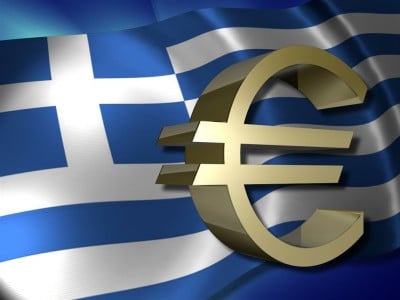The ECB as Vulture Fund: How Central Banks Speculated Against Greece and Won Big
We are seeking to put this issue on Parliament's next plenary session agenda.

Responses from European Central Bank (ECB) President, Mario Draghi, and European Commissioner for Economic and Financial Affairs, Pierre Moscovici, to questioning by Greek MEP Nikos Chountis have revealed that the ECB and national central banks have been reaping super-profits from Greek bonds over the course of the economic crisis. In effect, the ECB and the national central banks have been behaving like a vulture fund, rather than monetary authorities that safeguard the sustainability of financial markets.
GUE/NGL is seeking to put this issue on the European Parliament’s agenda for its October plenary session (23/10 – 26/10) so that we get proper answers and establish the full extent of this scandal.
The story
From 2010, the ECB and the national central banks of the Eurozone (collectively known as the Eurosystem), started implementing the Securities Markets Program (SMP), in order to ease the pressure against sovereign debt interest rates in financial markets. At the end of the programme, in September 2012, the ECB alone owned €218bn of sovereign debt, from Ireland (€14.2bn), Greece (€33.9bn), Spain (€44.3bn), Italy (€102.8bn) and Portugal (€22.8bn). We say “alone”, because between 2010 and 2012, the national central banks of the Eurozone also purchased an unknown amount of Eurozone sovereign debt.
See Commissioner Moscovici’s answer to questions on this issue here.
The important issue here is that both ECB and national central banks purchased sovereign debt in prices that were lower than the nominal value of the bonds. Namely, they had bought, for example, a Greek bond that would pay 100 euros in 4 years, for 70 euros. Thus, their profit is extraordinary, since they are gaining, not only from the interest paid, but also from the difference between buying price and nominal price.
In 2012 the Greek Government and the Troika decided to haircut all the Greek bonds that were held by the private sector (Private Sector Involvement – PSI), that is, held by Foreign Banks, mostly French and German, and many private and public entities in Greece, such as:
- Greek banks, which afterwards were recapitalized by the loans Greece received by EFSF and ESM,
- Greek Pension Funds, that today are unable to give decent pensions and consequently all the pro-austerity governments “were obliged” to introduce pension cuts and increases in contributions,
- State Owned Enterprises, which have deteriorated in financial terms.
However, the Greek bonds that the ECB and the national central banks owned were excluded by the PSI haircut, thus reducing the effectiveness of the debt haircut.
During the 2012 negotiations, the Eurogroup stated that if Greece is a “good student” and implements the 2nd adjustment programme, on the one hand, and Greek debt continues to be unsustainable into the future, on the other, the ECB and the national central banks (via the Member-States) will return these profits to Greece.
What is the picture today?
The following table summarises how much the ECB and national central banks have gained, and how much Greece has received all these years:

The Total Profits column adds the next two columns (SMP + ANFA), while the Refunds column shows what Greece has received back from SMP/ANFA profits, particularly, as Commissioner Moscovici said, from the Greek Central Bank.
From the Table above it is clear that the Eurosystem (the ECB and the national central banks of those countries that have adopted the euro) has speculated against Greece, by buying cheap Greek Bonds, months before the official PSI haircut and at the same time safeguarding the exclusion of those bonds from the haircut.
Will Greece get these “super-profits” back?
Unfortunately, it will be difficult for Greece to get these profits back.
First of all, the profits for the years 2015 and 2016 are completely lost, as a “penalty measure” for the 2015 NO referendum. You can find another of Moscovici’s answers to a written question that validates that here.
Secondly, the Eurogroup Summit (June 2017) presented the medium-term measures for Greek debt, that is the measures that ESM will take if and only if (a) Greece implements the 3rd Program completely and (b) in 2018 the IMF/ECB/Commission evaluate Greek debt as unsustainable. One of these measures is the transfer of 2014 SMP Profits (€1.8bn) and SMP/ANFA Profits from 2017 (€3.5bn) into an ESM Segregated Account, as a buffer for the Greek budget.
To sum up…
The issue of SMP/ANFA profits is a big political and economic scandal. The EU institutions knew from 2011 that Greek Bonds will be written off considerably. Nevertheless, the ECB and national central banks purchased Greek bonds, at very low prices, and received super-profits from interest payments and capital gains. These super-profits, instead of helping the Greek economy and the Greek budget, are being used as a political tool for the implementation of austerity and neoliberal policies in Greece.
Next step?
This has to stop! Measures need to be put in place to ensure this can never happen again. Ultimately, the money must be returned to Greece. As a first step, the GUE/NGL is seeking to put this issue on the European Parliament’s agenda so that the Commission answers to MEPs. A wider debate on the role and the functioning of the ECB during the crisis must also urgently be held.

